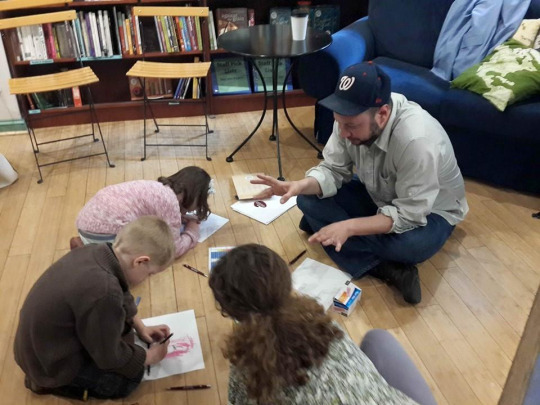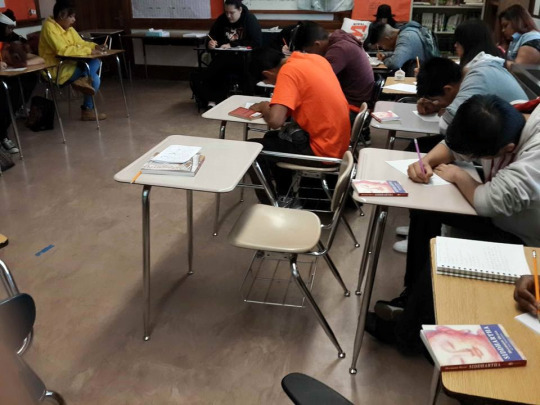Breathing, Reflecting
April and May were insane. Paris (including two events at the American Library in Paris), a school assembly presentation, an all-day workshop in Boyce, VA, a Northeast tour with 8 events, Gaithersburg Book Festival, two events at Fantom Comics, St. Louis, a four event stop in Denver, New Orleans, and then AwesomeCon. It was exhausting.
Most of the adult-oriented events were low-to-mid attended but the kids events were always packed, bringing in at least 30 kids for almost everything I did. And what we did was make comic books.
Turns out, kids love to make comic books. Even if they’re unsure at first or roll their eyes, once they start drawing it’s hard to get them to stop. Five-year-olds, middle schoolers, even high schoolers - everyone draws their comics and shares their work afterwards.
When I do my workshops I try to teach the kids a little something. If it’s a science theme, I’ll give them a little science lesson and then help them create a science or science fiction comic. If it’s a history theme, I’ll give them a little
history
lesson and then help them create a historical or
historical
fiction comic. When I taught at a high school I had them adapt sections of SIDDHARTHA and THINGS FALL APART, two of the books they were reading for class.
By doing this, they learn how to apply their knowledge in a creative way. Something that they take home to their parents or share with their class and take ownership of. It’s an extension of STEAM and Maker and Legos and Minecraft - kids don’t like to necessarily be drilled on facts, they want to explore the concepts that they’re learning, apply them and extend on them, experiment with them.
It’s a challenge, sometimes. The one complaint I get every time is, “I can’t draw.” At that point, I like to show them comics that feature stick figures or rough pencil work - I show them how terrible my own artwork is - and try to make them understand that EVERYONE can draw, some people just do it differently than others. That comics isn’t always about perfect draftsmanship, that storytelling is more important. Normally, that gets them drawing.
Sometimes kids get a bit of writer’s block. I try to encourage collaboration. I always make their teachers or parents draw comics if they’re sitting in. Have the adults bounce ideas off the kids. I always make my own comic, and I walk around the room and show each of them what I’m doing. Sometimes I’ll say something like, “Oh, you’re using a dragon. I kind of want to use a dragon in mine - do you know how I can work one in?” They’ll tell me, I’ll include it, and credit them as a co-writer. I’ll also give them suggestions if they’re stuck, or ask them if they can draw a cat in my comic because they draw cats better than me.
Collaboration, education, creative endeavors - comic workshops leave a real impression on the kids who take them. Many of them follow-up with me down the line, send me their comics they’ve worked on since the workshop. I try to teach them what constructive criticism looks like, because so few people really see it by the time they enter adulthood. I tell them what’s good, offer suggestions on what they can do to improve the work.
There are just so many lessons that come out of a single workshop. I love doing them. I hope to continue to do them for a long time.








